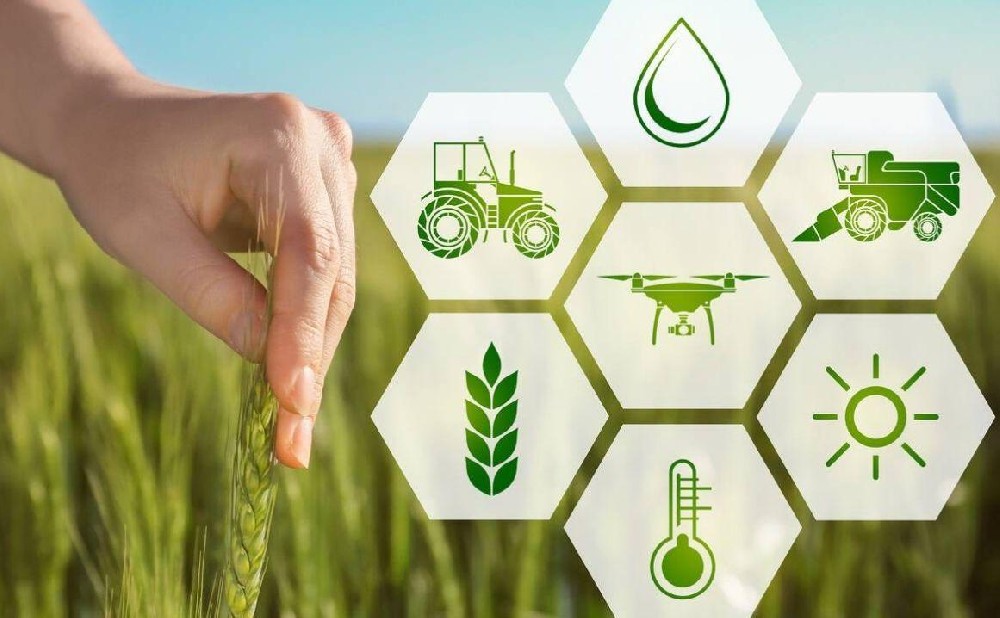

— Blogs —
—Products—
 Consumer hotline +8618073152920
Consumer hotline +8618073152920 WhatsApp:+8615367865107
Address:Room 102, District D, Houhu Industrial Park, Yuelu District, Changsha City, Hunan Province, China
Product knowledge
Time:2024-01-24 20:43:48 Popularity:3501
Soil monitoring sensors are sensors that are used to monitor various parameters of the soil including soil temperature, moisture, pH, conductivity, nitrogen, phosphorus and potassium content. These sensors can be used to monitor the condition of the soil for parameters such as fertility, moisture, aeration, etc., thus helping the farmer or gardener to better manage the crop and improve the quality of growth and yield.

Different types of soil monitoring sensors can measure different parameters. For example, soil temperature sensors can measure the temperature of the soil, soil moisture sensors can measure the moisture content of the soil, soil pH sensors can measure the acidity and alkalinity of the soil, soil conductivity sensors can measure the salt content of the soil, and soil nitrogen, phosphorus and potassium sensors can measure the content of nitrogen, phosphorus, potassium and other elements in the soil.
These sensors can usually be connected to a cloud-based platform via IoT technology, which allows users to check the condition and parameters of the soil anytime, anywhere via mobile phones, computers and other devices. In addition, some sensors can automatically adjust the parameters of the soil as needed, such as automatic irrigation and fertiliser application.
Overall, soil monitoring sensors are an important agricultural and horticultural tool that can help users better understand and manage the condition of the soil and improve the quality of crop growth and yield.
1. soil temperature sensor:
Soil temperature sensor is used to measure the temperature of the soil. It helps farmers and gardeners to determine the right planting time and crop growing conditions. Common soil temperature sensors use thermistors or thermocouples to measure soil temperature changes.
A soil moisture sensor is used to measure the amount of water in the soil. It helps farmers determine when to irrigate their crops and how much to irrigate. Common soil moisture sensors include resistive, capacitive and frequency domain sensors.
3. soil pH sensors:
Soil pH sensors are used to measure the acidity or alkalinity of the soil. Acidity and alkalinity directly affect plant uptake and nutrient release. The sensors usually use glass electrodes or electrodes with a special membrane layer to measure soil pH.
Soil conductivity sensors are used to measure the conductivity in the soil. Conductivity is a measure of the amount of dissolved substances (such as salts) in the soil. High conductivity values may indicate salinity problems in the soil. Sensors typically calculate conductivity by measuring the ability of an electric current to conduct through the soil.
5. Soil NPK sensors:
Nitrogen, phosphorus and potassium sensors are used to measure the amount of nitrogen, phosphorus and potassium in the soil. These elements are the main nutrients required for plant growth. Sensors typically use techniques such as ion-selective electrodes or spectral analysis to measure the concentration of these elements in the soil.
Soil monitoring sensors are devices that use modern technological means to monitor the soil in real time and obtain data about it. They can help farmers and horticulturists to better understand the soil environment, develop more effective agricultural production plans, as well as improve the yield and quality of crops. The following are the roles and values of soil monitoring sensors:
1. optimise irrigation:
Soil moisture sensors measure the amount of moisture in the soil, which helps farmers determine when to irrigate their crops and how much to irrigate. This avoids the problem of over-irrigation or lack of irrigation, thus improving crop growth and yield.
2. Saving resources:
By using soil monitoring sensors, farmers can better understand the condition of the soil and avoid unnecessary waste. For example, soil conductivity sensors can help farmers identify areas of the soil that are too salty and thus avoid watering in that area. This saves water while reducing the impact on the environment.

3. Improving agricultural productivity:
By monitoring soil temperature, moisture, pH, conductivity and nutrient content in real time, growers can make adjustments and optimise as needed for more efficient agricultural production. For example, by adjusting soil pH, plants can be allowed to better absorb nutrients, improving yield and quality.
4. Predicting pests and diseases:
Certain soil monitoring sensors can also detect microorganisms, insects and other organisms in the soil, thus helping farmers to predict the occurrence of pests and diseases and take timely measures to prevent and control them from damaging their crops.
In short, soil monitoring sensors are useful and valuable because they can provide farmers and gardeners with detailed information about the soil environment, helping them to better manage the soil and improve crop yields and quality, while conserving resources, reducing waste, and protecting the environment.
Related recommendations
Sensors & Weather Stations Catalog
Agriculture Sensors and Weather Stations Catalog-NiuBoL.pdf
Weather Stations Catalog-NiuBoL.pdf
Related products
 Combined air temperature and relative humidity sensor
Combined air temperature and relative humidity sensor Soil Moisture Temperature sensor for irrigation
Soil Moisture Temperature sensor for irrigation Soil pH sensor RS485 soil Testing instrument soil ph meter for agriculture
Soil pH sensor RS485 soil Testing instrument soil ph meter for agriculture Wind Speed sensor Output Modbus/RS485/Analog/0-5V/4-20mA
Wind Speed sensor Output Modbus/RS485/Analog/0-5V/4-20mA Tipping bucket rain gauge for weather monitoring auto rainfall sensor RS485/Outdoor/stainless steel
Tipping bucket rain gauge for weather monitoring auto rainfall sensor RS485/Outdoor/stainless steel Pyranometer Solar Radiation Sensor 4-20mA/RS485
Pyranometer Solar Radiation Sensor 4-20mA/RS485
Screenshot, WhatsApp to identify the QR code
WhatsApp number:+8615367865107
(Click on WhatsApp to copy and add friends)
